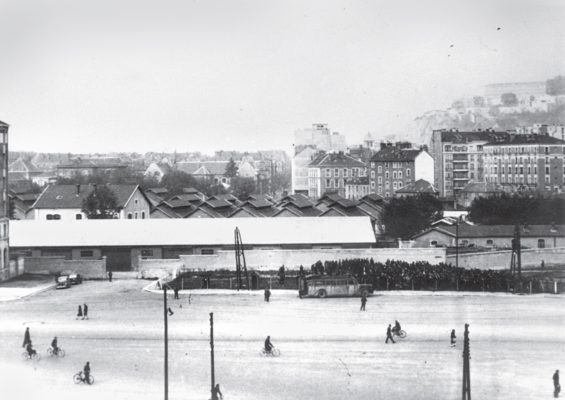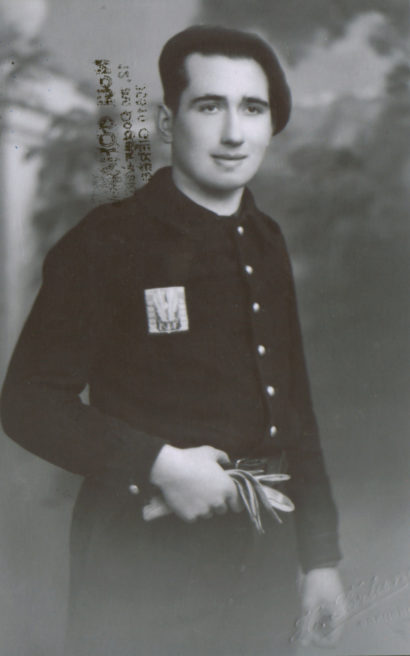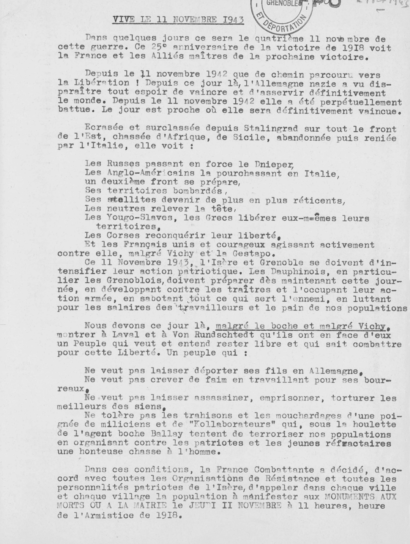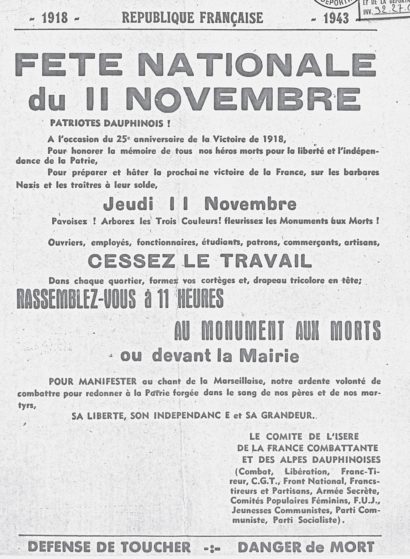Noël Cohard
born December 22, 1920
![]()
Noël Cohard wearing the uniform of the “Chantiers de la jeunesse française”, 1942 (private collection)
The “Chantiers de la jeunesse française” was a paramilitary labor service into which young men were drafted in the Vichy Regime in place of military service.
“When You Return, Tell the Story of What They Did to Us”
Noël Cohard grew up near the city of Grenoble. He began work on his parents’ farm as a youth. In 1943, all the men born between 1920 and 1922 were rounded up for forced labor in the German war industries. In response, Noël Cohard joined the French resistance. On November 11, 1943, the twenty-fifth anniversary of the 1918 Armistice, a large protest against the occupation took place in Grenoble. Noël Cohard was one of 600 protesters arrested by the Germans that day.

In front of the Hoche barracks in Grenoble, secret photograph of November 11, 1943 (Museum of Resistance and Deportation of Isère)
The arrested demonstrators are visible in the center of the photograph.
![]()
Typewritten pamphlet calling for a demonstration against the German occupation, November 1943 (Museum of Resistance and Deportation of Isère)
![]()
Printed pamphlet calling for a demonstration against the German occupation, November 1943 (Museum of Resistance and Deportation of Isère)
In February 1944, Noël Cohard was deported to Flossenbürg via the Compiègne police detention camp and the Buchenwald concentration camp. A young, strong man, Noël Cohard was able to survive the harsh conditions of labor in the quarry for six months. Then he was assigned to the Messerschmitt company. There he and other prisoners attempted to sabotage aircraft production by not tightening the screws sufficiently. In April 1945, shortly before liberation, Noël Cohard contracted typhoid and tuberculosis. He survived thanks to the medical care provided by American military physicians.
After returning to France, Noël Cohard spent two years regaining his health. He worked as a farmer, married, and had two children. After retiring, he began to recount his experiences for classes in schools. By so doing, he fulfilled a request from one of his comrades who had died in the camp: “When you return, tell the story of what they did to us.”


